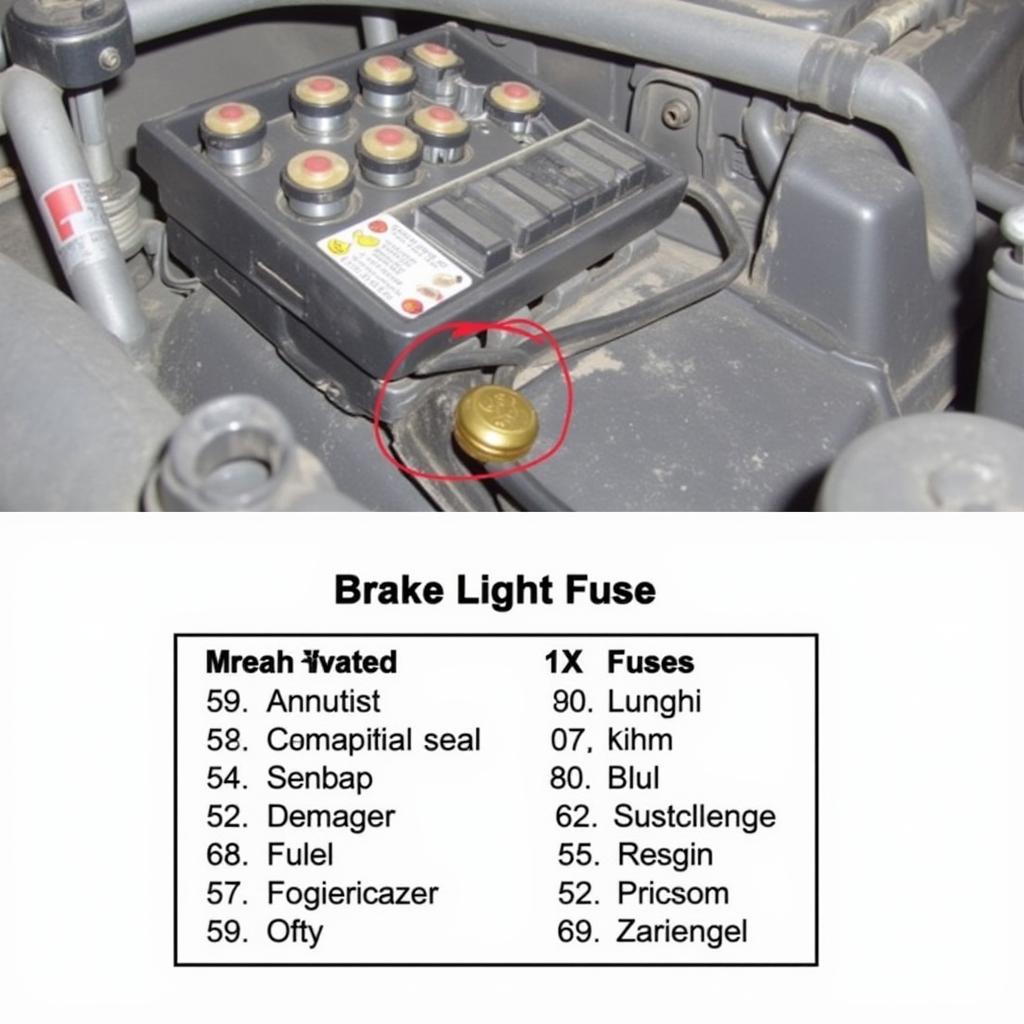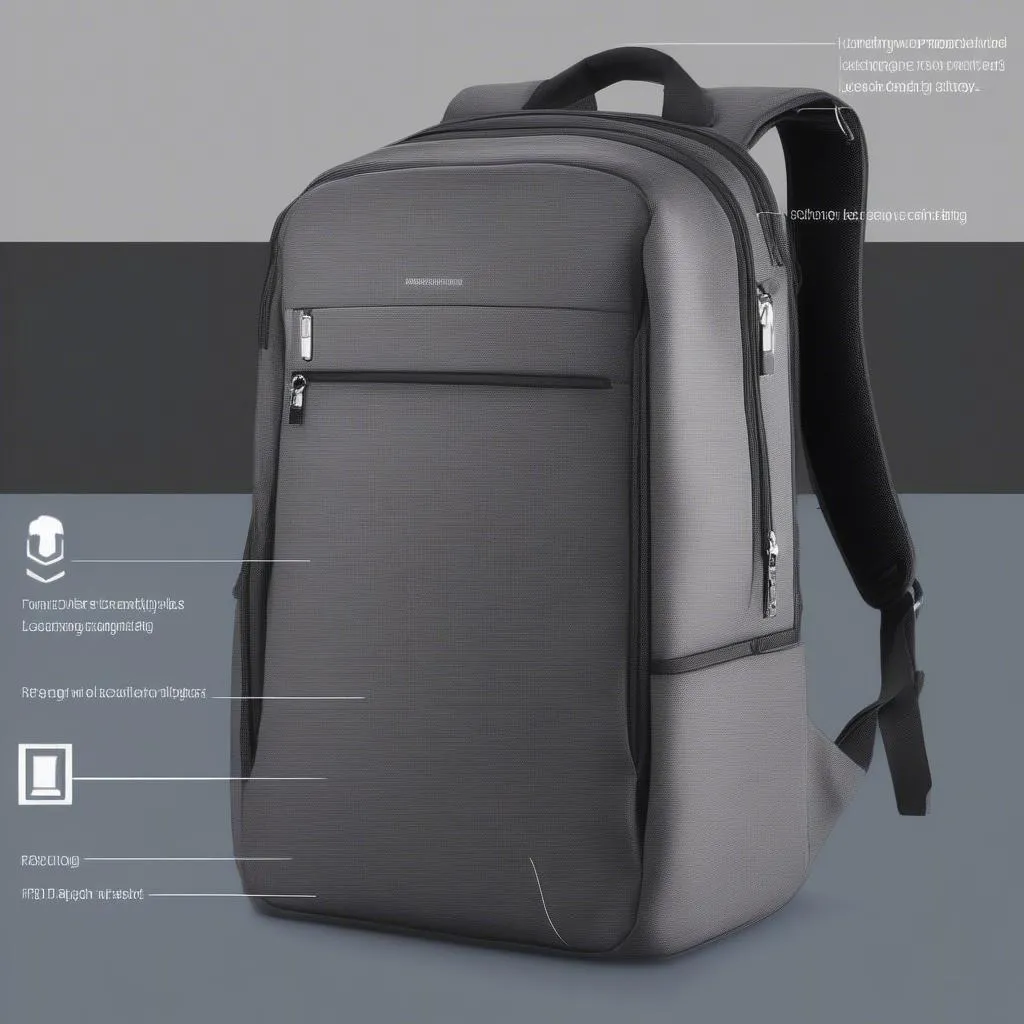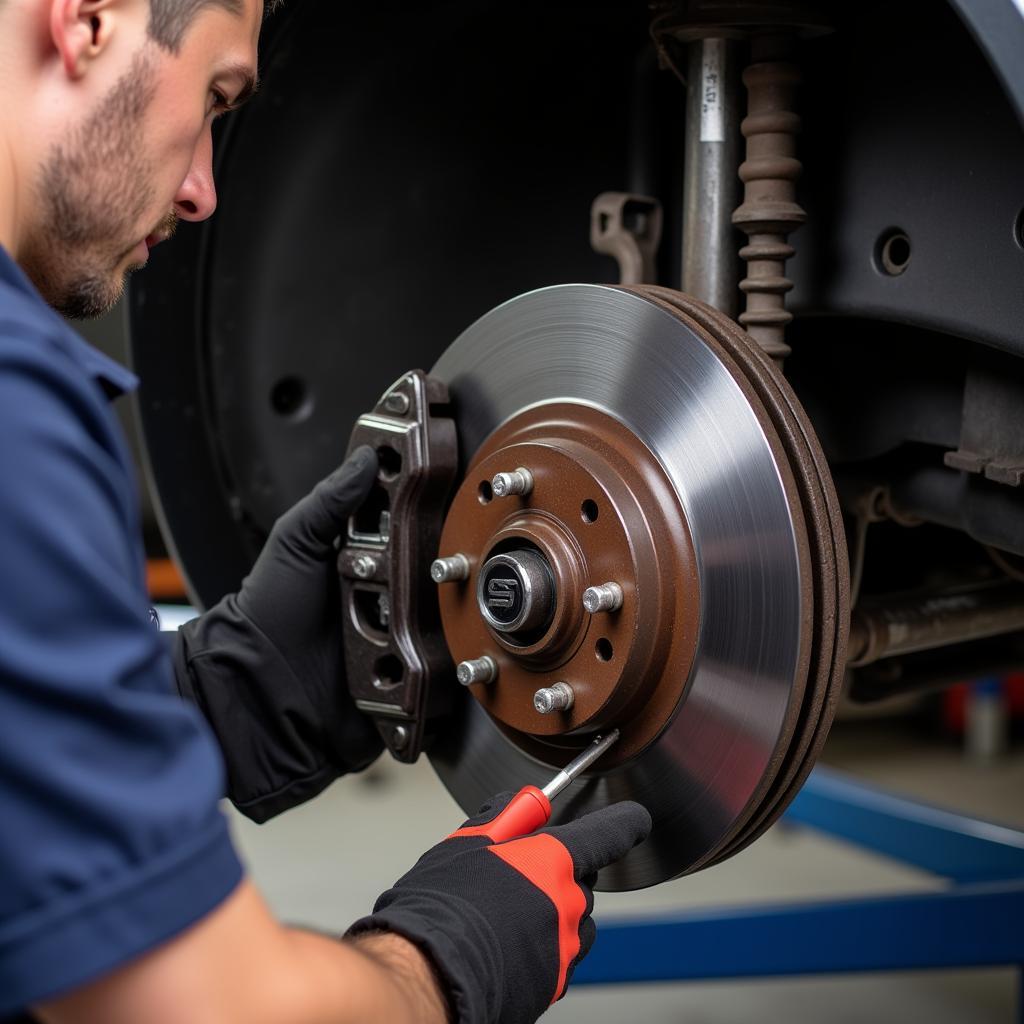Seeing a “brake light bulb warning” light on your Volkswagen’s dashboard can be alarming. While it might seem like a minor electrical issue, a malfunctioning brake light can significantly impact your safety on the road. This article will guide you through the common causes of this warning in VW vehicles and how to troubleshoot them, potentially saving you a trip to the mechanic.
Decoding the VW Brake Light Warning
Your VW is equipped with a sophisticated system to monitor crucial components, including the brake lights. When the system detects a fault, it triggers the warning light, often appearing as a red circle with an exclamation mark or a light bulb symbol. Ignoring this warning is not recommended, as it could lead to dangerous driving conditions.
Common Causes and Troubleshooting Tips
Several culprits can trigger a VW brake light bulb warning. Here’s a breakdown of the most common issues and how to address them:
1. Burnt Out Bulb
This is the most frequent cause. Like any other light bulb, brake light bulbs have a limited lifespan and eventually burn out.
Solution: Inspect both brake light bulbs. If you find a burnt-out bulb, replace it with a new one of the correct type and wattage specified in your VW owner’s manual.
2. Faulty Wiring or Connectors
Corrosion, loose connections, or damaged wiring in the brake light circuit can disrupt the flow of electricity, causing the warning light to appear.
Solution: Carefully inspect the wiring harness and connectors leading to the brake lights for any signs of damage, loose connections, or corrosion. Repair or replace any faulty components as needed. If you’re uncomfortable working with electrical components, it’s best to consult a qualified mechanic.
3. Brake Light Switch Malfunction
The brake light switch, located under the brake pedal, activates the brake lights when you press the pedal. A faulty switch can prevent the lights from working correctly.
Solution: Testing the brake light switch often requires a multimeter and some mechanical knowledge. If you suspect a faulty switch, it’s advisable to have it diagnosed and replaced by a qualified mechanic, especially if you are experiencing issues like your brake lights staying on constantly.
4. Blown Fuse
A blown fuse in the brake light circuit can interrupt the power supply to the lights, triggering the warning light.
Solution: Locate your VW’s fuse box (usually under the dashboard or in the engine compartment) and consult your owner’s manual to identify the correct fuse for the brake lights. Inspect the fuse for any signs of damage or a break in the filament. Replace a blown fuse with a new one of the same amperage rating.
 VW Fuse Box Diagram
VW Fuse Box Diagram
Addressing Persistent Warning Lights
If you’ve checked and addressed all the common causes and the warning light persists, it’s time for professional help. Advanced diagnostics may be needed to pinpoint the issue, which could involve specialized equipment to read and interpret your VW’s fault codes.
vw new beetle brake warning light
Preventing Future Issues
Regular maintenance can help prevent brake light problems. Consider these tips:
- Routine Bulb Checks: Inspect your brake lights regularly and replace any dim or burnt-out bulbs promptly.
- Clean Contacts: Periodically clean the brake light bulb contacts and sockets to prevent corrosion build-up.
- Visual Inspections: Regularly inspect the wiring and connectors for signs of damage, wear, and tear.
Conclusion
A “brake light bulb warning” on your VW dashboard is a safety concern that should not be ignored. By understanding the common causes and following the troubleshooting steps outlined in this article, you can often resolve the issue yourself. However, if you’re unsure or uncomfortable with any aspect of the repair, it’s always best to consult a qualified mechanic to ensure your VW remains safe and roadworthy. Remember, brake lights warn other drivers of your actions, contributing significantly to preventing accidents.


